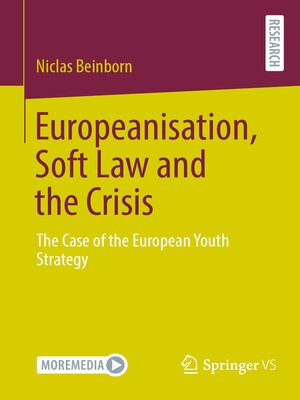Europeanisation, Soft Law and the Crisis
ebook ∣ The Case of the European Youth Strategy · Social Science and Law (German Language)
By Niclas Beinborn

Sign up to save your library
With an OverDrive account, you can save your favorite libraries for at-a-glance information about availability. Find out more about OverDrive accounts.
Find this title in Libby, the library reading app by OverDrive.



Search for a digital library with this title
Title found at these libraries:
| Library Name | Distance |
|---|---|
| Loading... |
Influence of "hard" law on national policies still is a central topic in Europeanisation research. One aspect often overlooked is the impact of "soft" law instruments such as the "Open Method of Coordination" (OMC). Through the OMC all member states agree on common goals and exchange "best practices" to improve policy coordination in a certain area without the obligation (how) to design policies. OMC impacts in individual member states have been studied extensively, yet a comparative perspective explaining their variance is lacking. This study by Niclas Beinborn tries to fill this gap by analysing the different impacts of a recent OMC: the European Youth Strategy 2010 (EUYS). His analysis is twofold: in a first step he applies theory-driven fuzzy-set QCA to a novel dataset depicting the variance of national activities around the EUYS. As causalities remain unclear, in a second step he presents an innovative analysis framework encompassing two dimensions – national motivation and relative openness to implement non-binding EU law – to define ideal types of OMC adaptation. Case studies on the EUYS in Germany and Ireland proof the potential of this framework to explain why and how OMCs work (differently).







